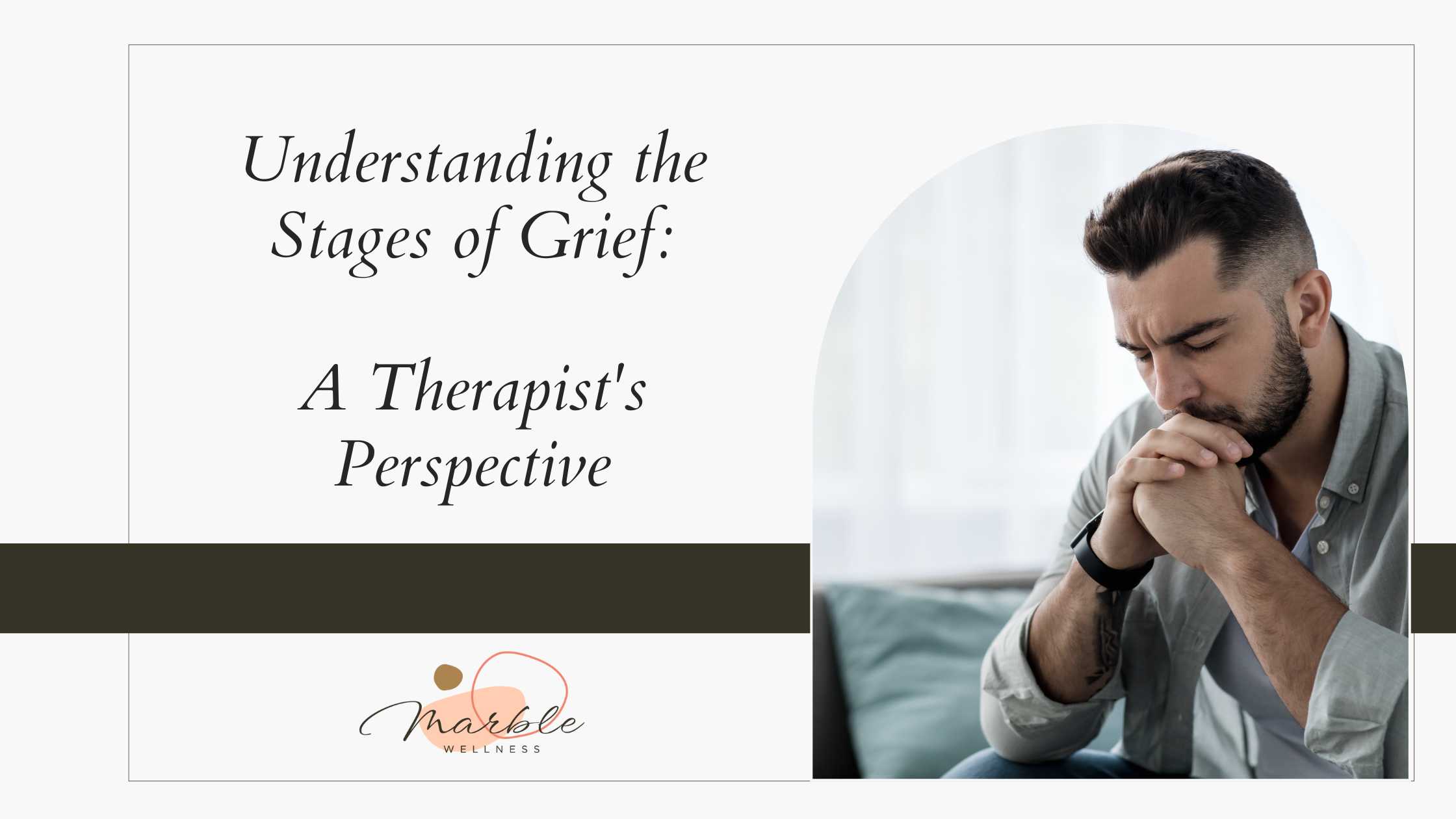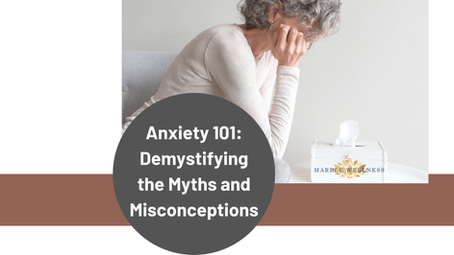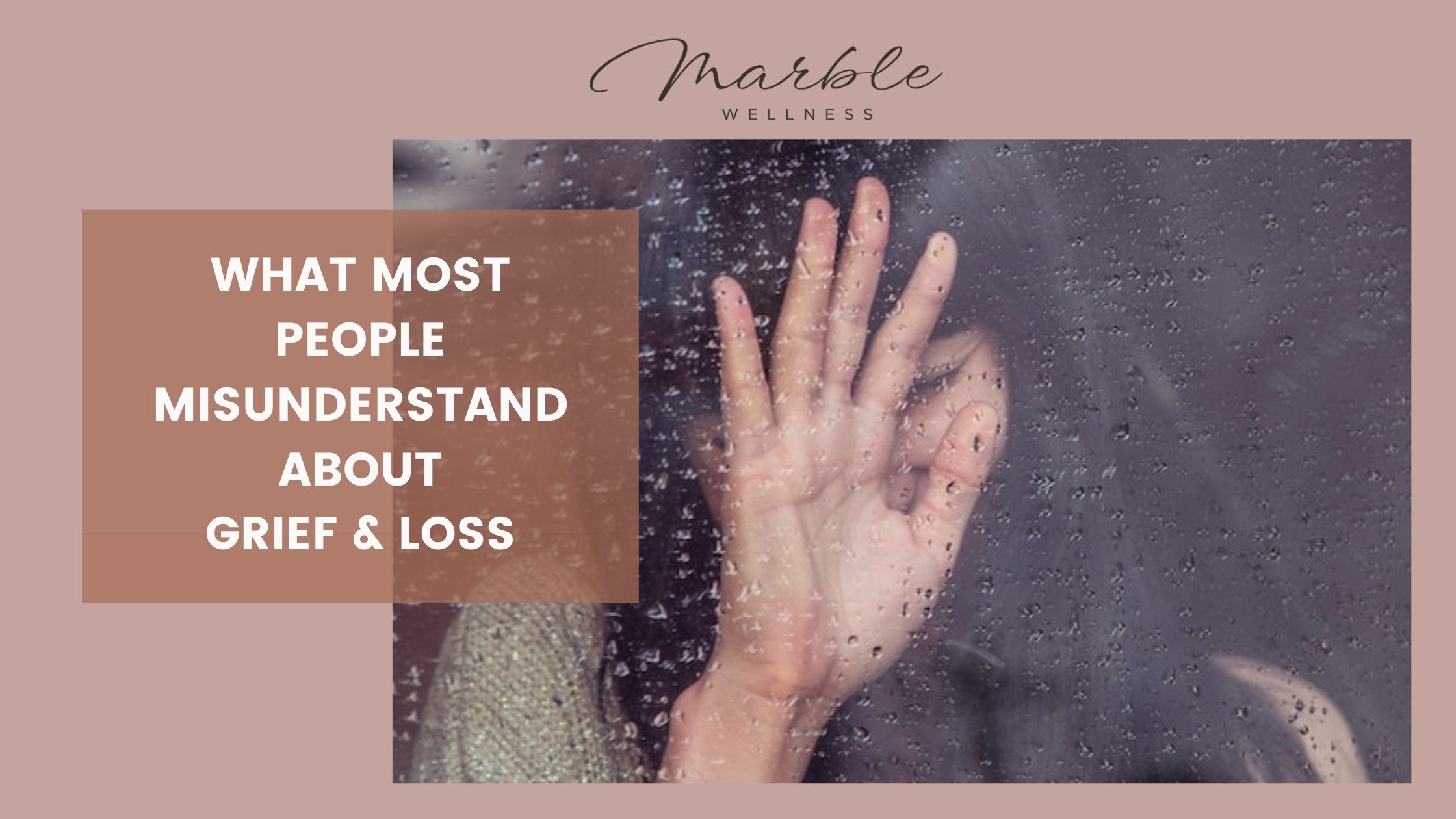Grief is a profound and deeply personal experience that can leave us feeling lost and overwhelmed. One way to make sense of this journey is to understand the stages of grief, a concept introduced by psychiatrist Elisabeth Kübler-Ross in her 1969 book, *On Death and Dying*.
As a licensed therapist who specializes in grief, I help clients through these stages to cope with grief and loss. However, it’s important to recognize that these stages are not set in stone and everyone experiences them differently.
Let’s delve into the stages of grief, highlight common misconceptions, and explore how grief therapy in St. Louis can support you through this process.
What are the five stages of grief?
Our West County therapists know how to talk about grief. We know not everyone experiences grief the same way, and it’s not linear! So, you may deal with one, more, or all of these “stages” in any order.
1st Stage of Grief: Denial
Denial is often the first reaction to loss. It’s a defense mechanism that helps us buffer the immediate shock and pain. You might find yourself thinking, “This can’t be happening,” or “There must be a mistake.”
Example: Imagine you just heard the news of a loved one’s passing. Your brain might refuse to accept the reality, and you go through the motions as if nothing has changed.
Misconception: Some people believe that denial means not acknowledging the loss at all. In reality, it’s more about feeling numb and struggling to grasp the enormity of what has happened.
2nd Stage of Grief: Anger
Once the denial starts to wear off, it’s common to feel anger. This anger can be directed at yourself, others, or even the person who has passed away. You might think, “Why did this happen?” or “It’s not fair!”
Example: You might find yourself snapping at friends or family, or feeling enraged at the situation. It’s a natural way to try and regain control.
Misconception: Many people think anger is a negative emotion that should be suppressed. However, it’s a crucial part of the healing process. Anger helps you express the intensity of your feelings and can be a stepping stone to acceptance.
3rd Stage of Grief: Bargaining
During the bargaining stage, you might find yourself making deals with a higher power or trying to find ways to undo or mitigate the loss. This is a way to cope with the helplessness and vulnerability we feel.
Example: Thoughts like, “If only I had done this differently,” or “I promise to be a better person if they can come back,” are common during this stage.
Misconception: Bargaining is often misunderstood as a sign of weakness or desperation. In truth, it’s a natural part of the process that reflects our deep desire to change the reality of our loss.
4th Stage of Grief: Depression
Depression is a stage where the reality of the loss truly sinks in. It’s characterized by deep sadness, regret, and sometimes a sense of hopelessness. You might feel disconnected from life and struggle with everyday activities.
Example: You might find it hard to get out of bed, lose interest in things you once enjoyed, or feel an overwhelming sense of sorrow.
Misconception: Some people think that feeling depressed means there’s something wrong with them. However, this stage is a normal response to loss. It’s important to acknowledge these feelings and seek support if needed.
5th Stage of Grief: Acceptance
Acceptance doesn’t mean you’re okay with the loss. Instead, it means acknowledging the reality of the situation and finding a way to live with it. You start to rebuild your life, carrying the memory of your loved one with you.
Example: You begin to engage with life again, finding new routines and ways to honor the memory of your loved one.
Misconception: Acceptance is often misconstrued as “getting over” the loss. In reality, it’s about finding a new way to move forward while still cherishing the memories and love you shared.
Myths about Grief (and, Truths from a St. Louis, MO Therapist)
1. The Stages of Grief Are Linear
One of the biggest misconceptions is that these stages happen in a neat, orderly fashion. The truth is, grief is messy and unpredictable. You might move back and forth between stages, skip some altogether, or experience several at once. It’s not a checklist to complete but rather a framework to understand the emotions you might encounter.
2. Everyone Grieves the Same Way
Grief is deeply personal, and everyone experiences it differently. Cultural, social, and individual factors all play a role in how we process loss. What works for one person might not work for another, and that’s okay.
3. Grief Has a Time Limit
Another common myth is that grief should be “over” after a certain period. In reality, grief doesn’t have an expiration date. It changes and evolves, but it’s a lifelong process. Allow yourself the time you need without putting pressure on yourself to “move on.”
The Role of Grief Therapy in St. Louis
Grief therapy in the St. Louis, MO metro area can provide invaluable support as you navigate these stages. A therapist can offer a safe space to express your feelings, provide coping strategies tailored to your needs, and help you understand the complex emotions you’re experiencing.
- Personalized Support: Therapy helps you explore your unique grief journey, addressing any specific challenges you face.
- Healthy Coping Mechanisms: A therapist can teach you practical techniques to manage overwhelming emotions and stress.
- Community and Connection: Joining a grief support group can connect you with others who understand what you’re going through, reducing feelings of isolation.
Finding Humor Amidst the Pain
While grief is incredibly heavy, finding moments of humor can be healing. It’s okay to laugh and find joy even in the midst of sorrow. Sometimes, sharing a funny memory of your loved one can bring a smile and remind you of the happiness they brought to your life.
Example: Remembering how your loved one always told the worst jokes can bring a chuckle, even if it’s through tears.
Consider Grief Therapy in St. Louis, MO
Understanding the stages of grief can provide a roadmap as you navigate the turbulent journey of loss. Remember, these stages are not rigid, and your experience is unique to you. Grief therapy in St. Louis is here to support you every step of the way, helping you find peace and healing at your own pace. And at Marble Wellness, we actually have grief therapy experts. Allow yourself to feel, seek support, and know that it’s okay to find moments of joy amidst the sorrow.
Contact Us!

Additional Counseling Services at Marble Wellness in St. Louis, MO and Chicago, IL
Counseling services are designed to help set you on a path of living a more fulfilled, calm, and happy life.
St. Louis
Our St. Louis team of therapists has a variety of training backgrounds and areas of expertise. We specialize in anxiety, depression, grief, chronic illness, therapy for men, couples, and maternal overwhelm. Our practice also helps new moms with various postpartum concerns, moms in the thick of parenting, and moms with teens. We can also chat from wherever you are in the state with online therapy in Missouri and online therapy in Illinois. No matter where you are in your journey, we would love to support you.
Chicago
Our Chicago team of therapists offers a wide range of mental health services to help our clients through the different challenges and hurdles in their lives. In addition to anxiety, depression, grief, therapy for men, and maternal overwhelm, we specialize in professional burnout, therapy for breakups, and love partnering with working moms.



